To find out, our UM Reporters randomly surveyed 364 UM students on their social media habits. Our survey results show that 98 per cent of UM students use social media. Over 50 per cent spend an average of one to three hours every day on social media, with Facebook, Wechat and Youtube being the most popular. Nearly 80 per cent of them use social media mainly to follow friends’ news or world news, to keep in touch with teachers and friends, or for entertainment. Our survey results also show that UM students browse UM’s social media pages regularly, with 90 per cent saying they follow UM’s news on Facebook and Wechat (refer to the chart for details).
First Thing upon Waking
Sam Li, a master’s student from the Department of Communication, is a phubber. The first thing he does upon waking up every morning is to check social media for any updates, especially updates on the student organisations that he has joined. ‘I spend an average of two to three hours every day on social media,’ he says. ‘It’s very hard for young people like myself to be immune to the influence of social media. It has become an indispensable part of our lives. It would be very difficult for me to quit social media.’ For Sam, using social media has become a habit that is as natural as taking a bus to school, and he doesn’t think it’s an addiction. Asked how his life has changed compared to when there was no social media, he laughs, ‘To be honest, I can’t remember how I lived my life back then.’
Social media provides a platform for people to share their personal views on various topics, a function Sam himself uses quite frequently. ‘In the past you shared your views with other people over dinner, but now you can post your views online any time you want. But the ease of sharing information also leads to a lot of false information floating around on the internet, so to this day I still trust authoritative sources over other sources,’ he says.
Does Social Media Shorten the Distance between People?
It seems that social media has become a symbol of the youth culture. Young people spend a lot of time on social media, and have become accustomed to being ‘plugged in’ to their smartphones and other high-tech gadgets, which have become like an extension of their bodies. Supporters swear by social media’s positive role in shortening the distance between people. But can excessive reliance on social media actually take time away from meaningful real world interaction?
Prof Liu Shih Diing from the Department of Communication sometimes communicates with his students via social media after class. ‘Ten years ago, no one would have foreseen what a big role social media would play in our lives,’ he says. ‘There is no doubt that social media shortens the distance between people, but for some people, it actually makes them have less real world interaction.’ As for Facebook, Prof Liu says, ‘Facebook provides a space where you can say anything you want. It allows users to discuss different topics on an equal footing. The act of adding someone as a friend to your Facebook page, when it happens between a student and a teacher, blurs the line between where the teacher-student relationship ends and where the Facebook-friends relationship begins. A problem with excessive reliance on social media is that people tend to have less real world interaction. However, if there were no internet and no social media, it would have a huge impact on our economy, because people wouldn’t be able to bear a lifestyle without social media.’
A Gauge of the Depth of Relationships
Alex Lam, a second-year student from the Faculty of Business Administration, agrees that social media makes communication easier, which in turn makes it easier to maintain relationships. ‘I mainly use Wechat as a communication tool—to arrange get-togethers with college members or to keep in touch with friends far away. I also like to share my feelings and experiences via
Wechat’s “Moments”. It’s good to share your happiness. It’s also very convenient to ask for help or borrow things from friends on social media, because it spares both parties the awkwardness you might experience if you ask face-to-face.’ But he strongly dislikes the practice of posting the same content on multiple platforms, saying it’s a ‘torment’.
According to Lam, you can actually tell the depth of your relationship with someone by how frequently both of you check your smartphones when you are with each other. ‘If the person constantly checks his smartphone when he is with you, it says you are not really close friends. In my experience, close friends usually don’t do “phubbing” when they are with each other.’
Too Much Social Media Takes Time Away from Other Things
Like everything else, social media has its pros and cons. Prof Wu Mei from the Department of Communication agrees that social media makes it easier to access information and to keep in touch with friends, but she cautions against obsession with social media. ‘We only have 24 hours a day, and if we spend too much time on social media, we will have no time left for other things. So we should use social media and our time wisely,’ she says.
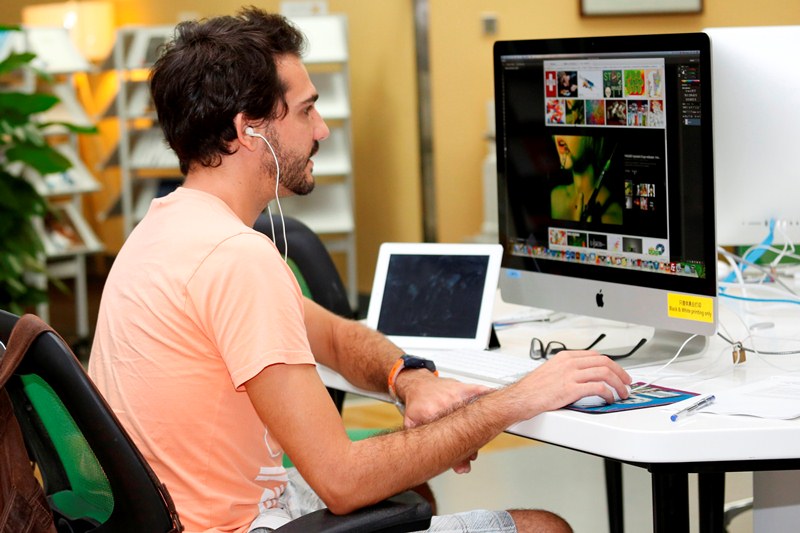
35487-81187

Sam Li
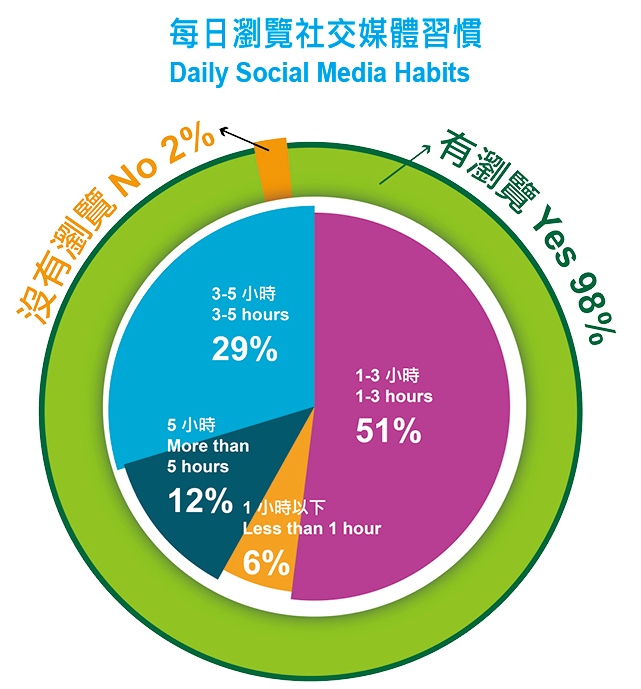
98 per cent of UM students use social media
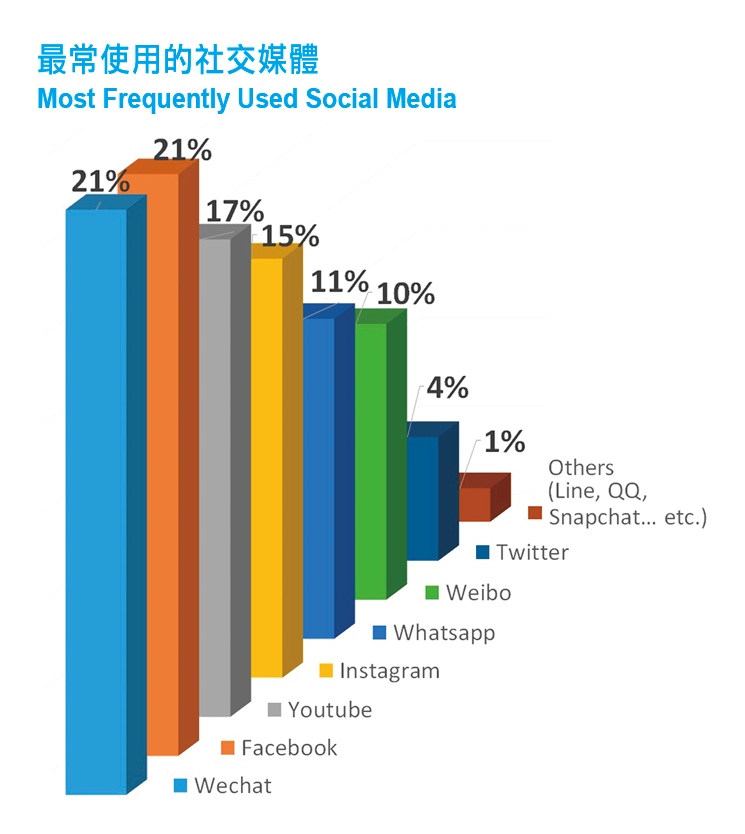
with over 50 per cent spending an average of one to three hours every day on social media.
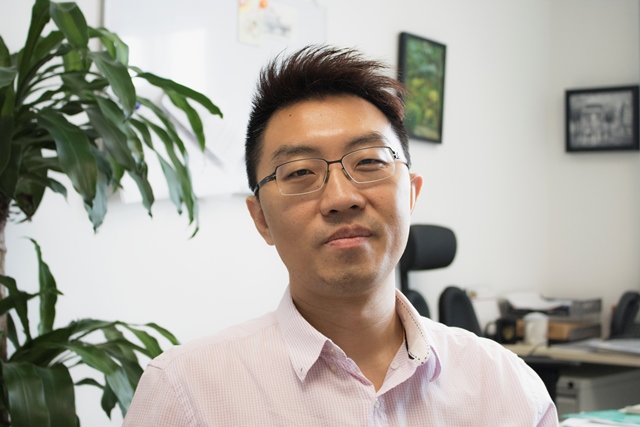
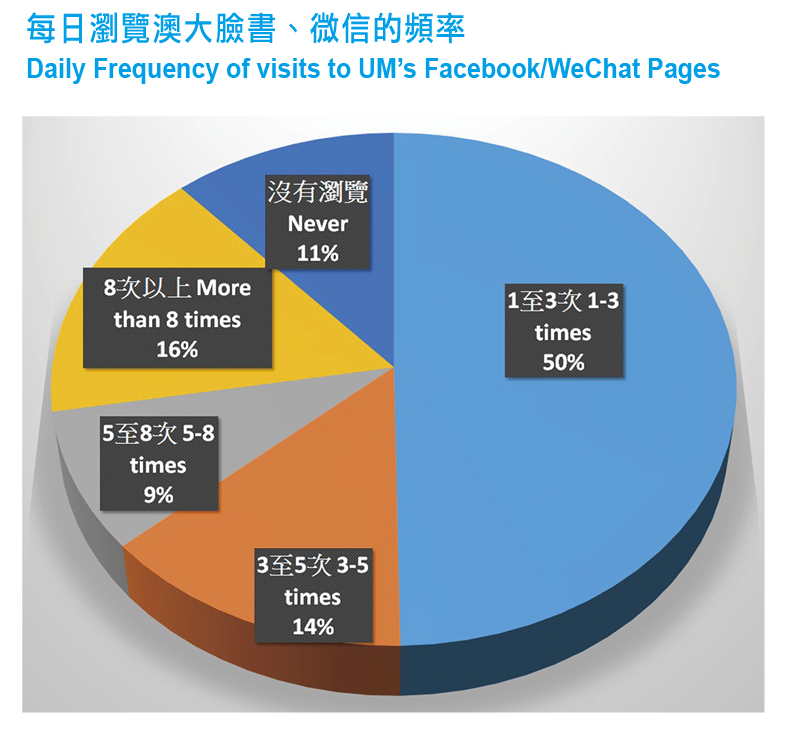
Wechat and Youtube are the most frequently used socialmedia among students.
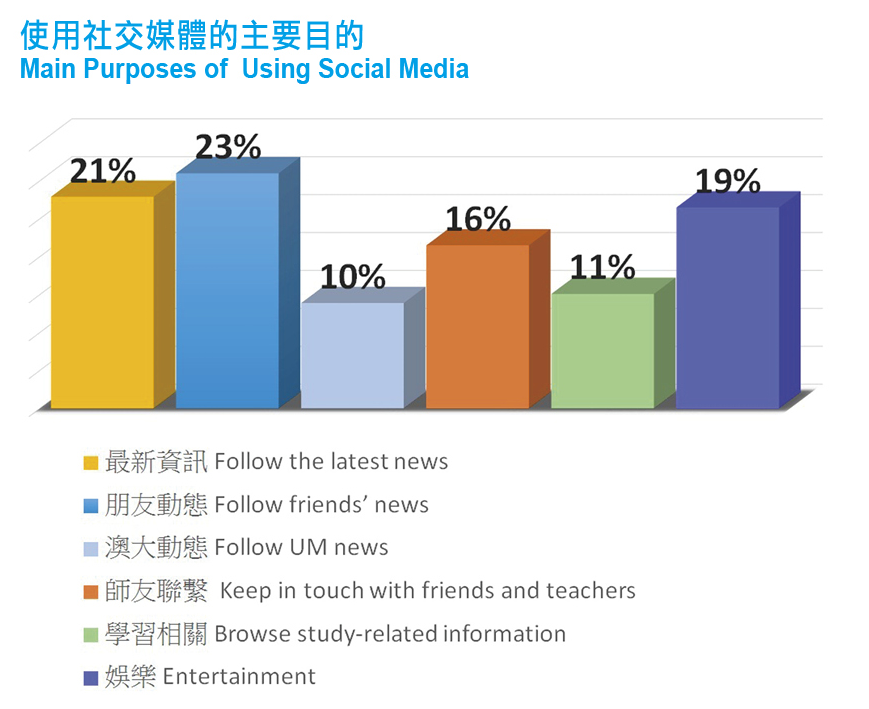
Prof Liu Shih Diing

Nearly 90 per cent of UM students follow UM’s news on Facebook and Wechat
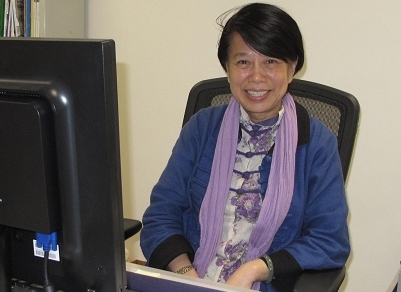
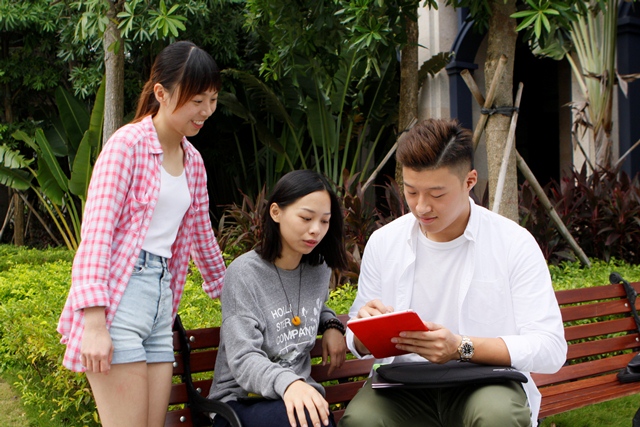
Alex Lam
